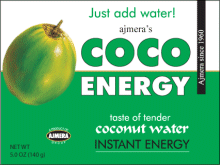Warning: Your Soft Drinks and Favorite Snacks
May be Loaded With Toxic Mercury
by www.SixWise.com
High-fructose corn syrup (HFCS) has replaced sugar in many processed foods, and is now found in soft drinks and other sweetened beverages, breads, cereals, lunch meats, soup, condiments, yogurt and much, much more.
|

Dairy products that contain HFCS were most likely to contain mercury, followed by dressings and condiments, the IATP study found.
|
The sweetener, which has been linked to everything from obesity and accelerated bone loss to increased levels of triglycerides, has gotten bad press before, but perhaps none as alarming as that from two new studies.
After testing samples of commercial HFCS, researchers found nearly half of the samples contained mercury.
The first study, published in Environmental Health, found mercury in nine out of 20 samples of commercial HFCS. The second study, conducted by the Institute for Agriculture and Trade Policy (IATP), a non-profit watchdog group, detected mercury in nearly one-third of 55 popular brand-name food and beverage products where HFCS is the first or second highest labeled
Ingredient -- including products by Quaker, Hershey’s, Kraft and Smucker’s.
Mercury was most prevalent in HFCS-containing dairy products, followed by dressings and condiments, according to the IATP study.
How Does Mercury Get Into HFCS?
To make HFCS, caustic soda is used to separate corn starch from the corn kernel. For decades, the caustic soda used for this purpose is mercury-grade caustic soda produced in industrial chlorine (chlor-alkali) plants. Because mercury cells are used to produce the caustic soda, the caustic soda can be contaminated with mercury, and then transfer that mercury contamination to the HFCS.
While most chlorine plants around the world have switched over to mercury-free technologies, four chlor-alkali plants in the United States still use mercury cell technology.
Why is Mercury Dangerous?
Mercury is one of the most toxic elements, and it is cumulative (meaning it does not pass easily out of your body but instead accumulates there). It is even more neurotoxic than arsenic.
In adults, chronic mercury poisoning as listed in toxicology literature can result in the following symptoms:
- Anger/irritability
- Mood swings
- Mental confusion
- Memory loss
- Insomnia
- Chronic fatigue
- Headaches
- Indigestion
- Tremors
Another of the primary health concerns surrounding mercury is for pregnant and nursing women, or women who may become pregnant, as mercury can harm a developing child. One study, for instance, found neuropsychological deficiencies in children who had higher levels of mercury in their cord blood sample, including deficiencies in:
|
Quench Your Thirst With 100% Natural, HFCS-Free CoCo Energy

Delicious CoCo Energy keeps you hydrated and is 100% NATURAL with No HFCS or Preservatives and No Artificial Flavors or Colors.
- Coconut water is more nutritious than whole milk -- less fat and NO cholesterol, and lower in calories than orange juice.
- Coconut water is a Natural Isotonic Beverage -- it has the same level we have in our blood, thus does not have an adverse affect on blood sugar or pressure.
- Coconut water contains more potassium (at about 294 mg) than most sports drinks (117 mg) and most energy drinks.
- Coconut water has less sodium (25mg) whereas sports drinks have around 41mg and energy drinks have about 200 mg!
Learn More and Order
CoCo Energy Now!
|
- Language
- Memory
- Attention
- Motor function
- Visual-spatial functions
Recent studies have also found a connection between increased mercury levels and heart disease and depression.
HFCS Use Has Skyrocketed
It’s always concerning when a toxic substance is found in our food supply, but when it’s found in one of the most widely used elements in our food supply it takes the concern to another level.
On average, Americans consume about 12 teaspoons of HFCS each day, however teenagers and other high consumers may consume up to 80 percent more than that.
“Mercury is toxic in all its forms,” said IATP’s David Wallinga, M.D., and a co-author in both studies. “Given how much high-fructose corn syrup is consumed by children, it could be a significant additional source of mercury never before considered. We are calling for immediate changes by industry and the FDA to help stop this avoidable mercury contamination of the food supply.”
How to Avoid HFCS
The first thing to do is to give up all soft drinks and other sweetened beverages that contain it.
If you’re looking for a delicious, healthy beverage to replace HFCS-containing soda or fruit juice, try Ajmera's Coco Energy and Xpress Chai. These drinks are 100% natural with NO high-fructose corn syrup, caffeine, preservatives, synthetic food colors or artificial flavors. They come in packets that are great for taking to work, the gym or whenever you’re in a hurry, as you simply add water and your tasty beverage is ready. And at a cost of just 50 cents a serving, both Coco Energy and Xpress Chai are incredibly economical.
|

“The bad news is that nobody knows whether or not their soda or snack food contains HFCS made from ingredients like caustic soda contaminated with mercury,” said IATP’s Dr. Wallinga. “The good news is that mercury-free HFCS ingredients exist. Food companies just need a good push to only use those ingredients.”
|
But HFCS is in much more than just beverages, so start checking labels meticulously. The vast majority of processed foods contain HFCS -- including products that aren't thought of as "sweet' (like croutons and flavored almond slices for salads).
Fortunately, as more and more consumers opt to stay away from HFCS, there are product alternatives out there. Organic pasta sauce and ketchup, for instance, are much less likely to contain HFCS than regular varieties. Look for them at your favorite health food store or even in the "natural" section of your local grocery store.
Recommended Reading
High Fructose Corn Syrup: Why the World's Most Popular Sweetener is Enemy #1 to Your Health and Waistline
The Nearly Unbelievable Prevalence of Corn: What You Don't Realize It's In Will Astound You
Sources
Institute for Agriculture and Trade Policy January 26, 2009
WashingtonPost.com January 26, 2009
Environmental Health January 2009, 8:2